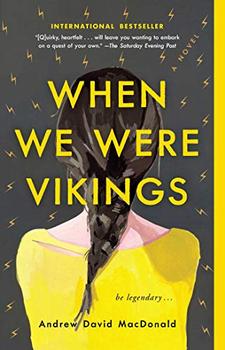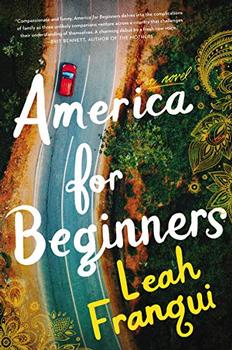Summary | Excerpt | Reading Guide | Reviews | Beyond the book | Read-Alikes | Genres & Themes | Author Bio

Matthew Quick's achingly delightful follow-up to The Silver Linings Playbook is an epistolary coming-of-age story about Bartholomew Neil, a 39-year-old naïf whose only attachment to normalcy - his sainted mother - has just abandoned him. Not her fault. She died of brain cancer. But Bartholomew was with her to the bitter, painful end. And now he's adrift, lost in a world that's not exactly set up to deal with socially stunted, unemployed midlifers. But it's gonna be (no spoilers here) okay, dear reader, because Mom has bequeathed him a house with mysteriously self-paying bills, a letter from movie star Richard Gere and a philosophy intended to mitigate life's ups and downs.
As long as we can suspend disbelief long enough to get an explanation for those self-paying bills, it's not an unreasonable stretch to accept the rest. First, Bartholomew discovers a form letter from movie star Richard Gere in his mother's underwear drawer. The letter urges Mrs. Neil to boycott the 2008 Olympics in China because of that country's position on Tibet and the Dalai Lama. She did of course. And so, based upon that letter, the countless hours she and Bartholomew logged watching Richard Gere's movies, and the actor's suave persona and his devout Buddhism, Neil initiates a one-sided correspondence with him. The letters serve as a clearinghouse for Bartholomew's confusion about his life, post-mother. Joblessness is something he is used to. Momlessness is frighteningly new. He needs all the help, real or imagined, he can get.
He writes, "I am wondering if Mom's boycott, her death, and my finding the letter you wrote her - maybe these things mean you and I are meant to be linked in some important cosmic way."
Besides the letters to the fantasized Gere, Bartholomew calls upon a variety of philosophies for guidance. Primary among them is Mrs. Neil's theory of the (eponymous) "Good Luck of Right Now." Roughly interpreted, this is the idea of balance in all things. A kind of cockeyed, homespun yin/yang. It goes like this: if something bad is happening to you, then something of equal good is happening to somebody else. And vice versa. Which fits neatly with Catholic - which the Neil's devoutly are - guilt. You see, Mrs. Neil always felt a little guilty when she had a streak of good luck because it meant...well, bad luck for someone else. For Bartholomew, this philosophy is interchangeable with the tenets of Catholicism, Buddhism and even Jung's notion of synchronicity. He falls back on whichever borrowed wisdom suits his immediate circumstance. Whatever, as they say, gets one through the night.
And it all works fairly well, mostly due to Bartholomew's naïveté. Because, although Quick never makes it explicit, my uneducated guess is that Bartholomew places somewhere in the very high-functioning end of autism spectrum disorder. Aspergers, maybe? He is fiercely well read and computer literate, but equally fiercely inept in the life skills department. Thus we ache for him, his grief and his loneliness. On the other hand, his makeshift (or make-do) methods of getting on with his life - including taking in a self-defrocked bipolar priest, intervening in his grief counselor's abusive relationship, befriending a cat telepath with possible (again, my diagnosis) Tourette's Syndrome - make him a delightful, endearing character.
Quick imbues his flawed characters with intense self-awareness. The priest, Father McNamee, knows he's bipolar and, while he doesn't relish his disability, he is willing to live with it, med free. "You know Jesus was most likely bipolar...what if Jesus had been medicated?" he says. Bartholomew has an "angry little man" inside him who calls him out cruelly when he commits a social faux pas. There's even a point when Bartholomew reflects on why it's okay - important even - for him and others like him to be "weird, strange, and unusual." He says, "The word normal would lose all of its meaning if it didn't have an opposite."
This sums up, I think, the point of both this novel and Silver Linings Playbook. The self-awareness, the humanness of these flawed but beautiful characters makes them just as important to the world as Type A overachievers and we ought to learn to appreciate them. This, plus Quick's lovely, sharp, funny prose, is what makes The Good Luck of Right Now a very worthwhile read.
![]() This review was originally published in The BookBrowse Review in March 2014, and has been updated for the
February 2015 edition.
Click here to go to this issue.
This review was originally published in The BookBrowse Review in March 2014, and has been updated for the
February 2015 edition.
Click here to go to this issue.

If you liked The Good Luck of Right Now, try these:

by Andrew David MacDonald
Published 2020
A heart-swelling debut for fans of The Silver Linings Playbook and The Curious Incident of the Dog in the Night-Time.

by Leah Franqui
Published 2019
Recalling contemporary classics such as Americanah, Behold the Dreamers, and The Brief Wondrous Life of Oscar Wao, a funny, poignant, and insightful debut novel that explores the complexities of family, immigration, prejudice, and the American Dream through meaningful and unlikely friendships forged in unusual circumstances.
Your guide toexceptional books
BookBrowse seeks out and recommends the best in contemporary fiction and nonfiction—books that not only engage and entertain but also deepen our understanding of ourselves and the world around us.